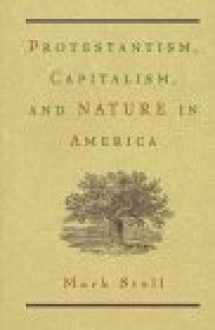
Protestantism, Capitalism, and Nature in America
Book details
Summary
Description
Environmentalists have often blamed Protestantism for justifying the human exploitation of nature, but the author of this cultural history argues that, in America, hard-boiled industrialists and passionate environmentalists sprang from the same Protestant root.
Protestant Christianity—Calvinism especially—both helped industrialists like James J. Hill rationalize their utilization of nature for economic profit and led environmental advocates like John Muir to call for the preservation of unspoiled wilderness. Biographical vignettes examine American thinkers, industrialists, and environmentalists—Benjamin Franklin, Joseph Smith, William Gilpin, Leland Stanford, Gifford Pinchot, Aldo Leopold, and others—whose lives show the development of ideas and attitudes that have profoundly shaped Americans' use of and respect for nature.
The final chapter looks at several contemporary figures—James Watt, Annie Dillard, and Dave Foreman—whose careers exemplify the recent Protestant thought and behavior and their impact on the environment.


We would LOVE it if you could help us and other readers by reviewing the book
Book review



